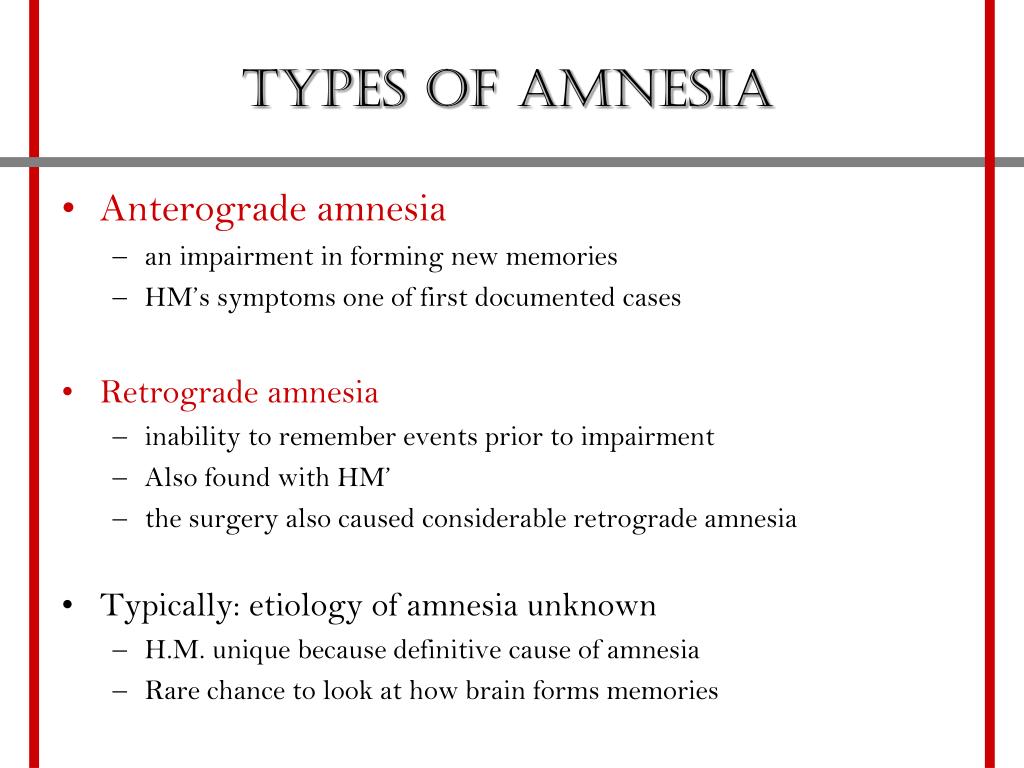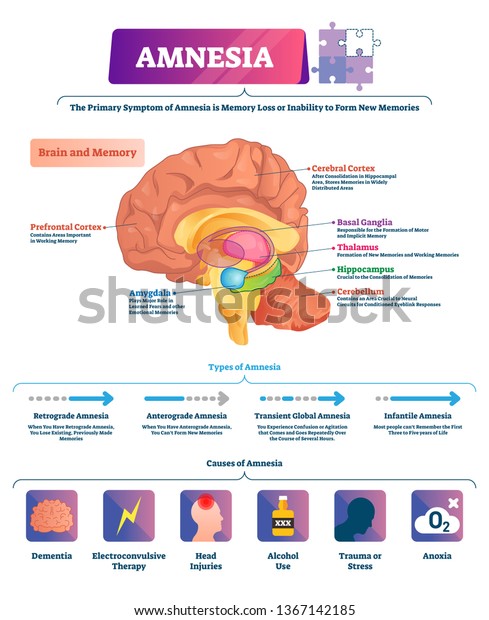
According to Medscape, common causes of dissociative amnesia include wars, a history of child abuse or sexual abuse, surviving a concentration camp, being a victim of torture and surviving a natural disaster. The more severe the trauma, the more likely the appearance of dissociative amnesia.
Types of amnesia involving trauma series#
Typically, a traumatic event or a series of traumatic events cause dissociative amnesia. It is estimated that 0.2% of the population has dissociative fugue. Fugue states with dissociative amnesia can last for hours, days, weeks or, in rare cases, even longer. Dissociative amnesia and fugue is when a person unexpectedly travels from the home or from work apparently towards a destination (or appearing to be running away from something) and without memory of his or her past or of their identity. In rare cases, a fugue state is associated with dissociative amnesia. Systemized amnesia – no memory of a certain category of information such as information about a specific person or place.Continuous amnesia – no memory from the past but is aware of current surroundings.Generalized amnesia – a rare form of amnesia wherein the person can't remember his or her whole life including his or her identity.Selective amnesia – partial memory of a particular time period.Localized amnesia – no memory from a specific time period.There are five types of dissociative amnesia that further specify dissociative amnesia symptoms and they include: The disturbance does not occur exclusively during the course of dissociative identity disorder, posttraumatic stress disorder (PTSD), acute stress disorder, or somatization disorder and is not due to the direct physiological effects of a substance or of another medical condition.A predominant disturbance of one or more episodes of an inability to recall important personal information, usually of a traumatic or stressful nature, that is too extensive to be explained by ordinary forgetfulness.To reach the level of an official mental illness diagnosis, the symptoms of dissociative amnesia must cause significant distress or impairment in important areas of life such as functioning at work or at home.Īccording to Medscape, in addition to the condition of distress or impairment, the following are the two main diagnostic dissociative amnesia symptoms:

If traumatic memories are recovered in these cases (for example, memories of sexual abuse), without proper treatment these people may be at risk of suicide. Some people may develop dissociative amnesia as an alternative to suicide.
Types of amnesia involving trauma manual#
The definition of dissociative amnesia can be found in the Diagnostic and Statistical Manual of Mental Disorders, Fifth Edition, along with all other mental illnesses. Dissociative amnesia involves an inability to recall important personal information in a way that is not explained by another illness or everyday forgetfulness. Those with dissociative amnesia may be at greater risk of self-injury and suicide.Dissociative amnesia can be mistaken for other mental illnesses such as dementia or delirium but, in fact, the definition of dissociative amnesia makes it a diagnosis in its own right and it is a dissociative disorder.

Most cases of dissociative amnesia are temporary, but memory gaps can last anywhere from a few minutes to an entire lifetime. When a person with generalized dissociative amnesia forgets everything about the self and their life, they may move to a new location and establish a new identity but, when discovered, they don’t know how they got there or why they have no identification. A person with dissociative amnesia may not remember friends, family members, or coworkers. Symptoms range from forgetting personal information, like one’s own name and address, to blocking out specific traumatic events or even the events of one’s entire life. Dissociative amnesia is not normal forgetting, like misplacing keys or forgetting the name of someone you met once or twice.


 0 kommentar(er)
0 kommentar(er)
